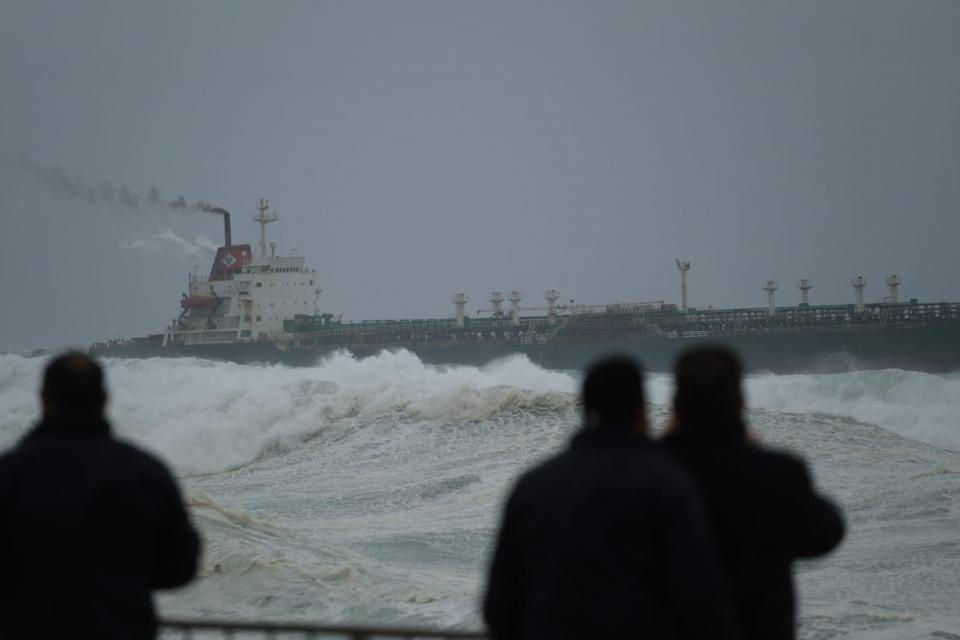Rescue, Salvage, and Contract Law
- Dr Carlos Bugeja

- Apr 24, 2021
- 4 min read
Updated: Mar 19, 2022
Our law is built on the principle that what is agreed to between parties to a contract is the law between them. This appears in article 992(1) of the Civil Code: '992.(1) Contracts legally entered into shall have the force of law for the contracting parties'. Our courts rarely intervene into what is agreed to by the parties. So, if parties agree that for the delivery of a particular service, the other will pay a certain amount of money, the court will not easily decrease the amount do just because it finds it to be excessive.
This notwithstanding, lying quietly within the proximities of article 992 (1) of the Civil Code is a rule that ostensibly moves away from the principle of freedom of contract of Maltese Law, a law that authorises courts to interfere in specific situations and change what is agreed to by parties to a contract. It caters for situations in which a person being subjected to violence or peril is offered help; only that the helper demands a price.

Article 977 (2) of the Civil Code states that:
‘...an obligation entered into in favour of a person not being an accessory to the use of violence, in consideration of services rendered for freeing the obligor from violence practised by a third party, may not be avoided on the ground of such violence; saving the reduction of the sum or thing promised, where such sum or thing is excessive.’
Basically, the idea is the court may mitigate the extent of the promise made by the rescued person to the rescuer where the sum promise in that perilous situation is considered excessive. The law wants to avoid situations in which the person being subjected to violence would have to accept exorbitant payment in his desperate need for help.
This principle is repeated in salvage laws. Whilst salvage often features in the discussion of quasi-contracts, it may be subject to a true and proper agreement. There are many sound reasons why a salvor and a vessel master or owner would want to enter into a salvage contract or agreement, but for the purpose of this article, it is sufficient to state that salvage may come subsequent to a freely negotiated agreement.
In Maltese law, salvage is regulated under the Merchant Shipping Act. The proviso to article 345 (1) provides that ‘every agreement as to assistance or salvage entered into at the time the services are rendered may be rescinded or modified by the court’.
Timing is of the essence here; not every assistance and salvage agreement is alterable, but only those that are entered into ‘at the time the services are rendered’.
The law seeks to make it clear that it will only intervene in those cases where the time between the agreement and the service rendered is practically non-existent. The law qualifies this by limiting this faculty to only when ‘it considers that the terms agreed upon under the influence of danger are not equitable’, ‘if the party making the request for a rescission or modification of the agreement satisfies the court that his consent to the agreement was vitiated by fraud or concealment’, or ‘if the remuneration agreed is excessively disproportionate to the services rendered’.
We are most interested in the first and third reasons; these can be examined together.
The law is aware that the vessel-master or the owner in a situation of peril, might agree on terms that he would have not agreed upon in normal circumstances. What would a vessel owner do if he is faced with a very onerous contract that would nevertheless save his sinking ship? What other options does he have? In that situation, vessel-masters or owners in desperate need of assistance may very well agree to any price imposed on them at that moment in time, and in turn end up being taken advantage of by those able to provide the service they necessitate.
This is why if the remuneration is considered as being excessive (hence, unfair), the court may modify it to better reflect the services actually rendered.
In protecting the vulnerability of those needing assistance, the law is not content in regulating just against the remuneration. It lays down a broad concept of protection (which presumably, also includes remuneration), invoking a principle largely foreign to our law - equity. What the law says is remarkable; indeed, it lays forward a strict warning to those intending to make a capital out of a vessel’s perilous situation. Apart from legislating against forced agreements (second reason in article 345 (1)), it also legislates against voluntary but unfree agreements. Any term agreed to in such a situation, including the price, is modifiable by the court if it deems it unfair.
The law aims to reach substantive fairness by correcting an inequality and in turn protecting who in such a situation could be objectively considered as the weaker party.
This overt faculty of intervention is seldom present anywhere else in our laws. Indeed, the law manifestly refutes freedom of contract in salvage agreements executed in perilous situations and gives courts the faculty to correct imbalanced terms reach in unconventional and rather unfree situations. More than that, there is no need for the aggravated party to request the modification of the agreement, for the Court has a full carte blanche to correct it as it deems fit.
Carlos Bugeja is a Partner at PROLEGAL Advocates.
Disclaimer: This article is not to be construed as being legal advice, and is not to be acted on as such. Should you require further information or legal assistance, please do not hesitate to contact Carlos Bugeja at carlos@prolegal.mt.



